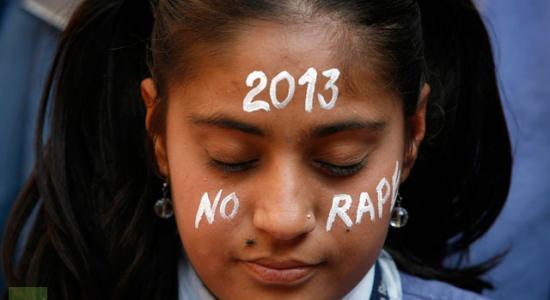When Delhi Rapists were ‘Provoked’
 I would like you to enlighten me as regards suspicion caused by a Friday speech. The topic of the speech was contemporary as the Imam spoke half an hour about the Delhi rape incident. He said that the incident happened when two unmarried couples travelled at night, which Islam is not in favour. He also pointed out the provocative way of women’s dressing as one of the reasons for the recurring incidents of rape and other forms of violence against women. Such dressing could provoke passion in man, who will go beyond all bounds to satisfy it. To top it all, he mentioned the awakened humanity of the accused in the case who regrets having done it to the woman and wants to get hanged? The imam added, ‘This dormant humanism is what Islam aims to promote against all forms of violence.” My suspicion is: can we analyse an incident of deep consequences in such a flimsy and superstitious manner? Does this speech do justice to the spirit of Islam?
I would like you to enlighten me as regards suspicion caused by a Friday speech. The topic of the speech was contemporary as the Imam spoke half an hour about the Delhi rape incident. He said that the incident happened when two unmarried couples travelled at night, which Islam is not in favour. He also pointed out the provocative way of women’s dressing as one of the reasons for the recurring incidents of rape and other forms of violence against women. Such dressing could provoke passion in man, who will go beyond all bounds to satisfy it. To top it all, he mentioned the awakened humanity of the accused in the case who regrets having done it to the woman and wants to get hanged? The imam added, ‘This dormant humanism is what Islam aims to promote against all forms of violence.” My suspicion is: can we analyse an incident of deep consequences in such a flimsy and superstitious manner? Does this speech do justice to the spirit of Islam?
When earthquakes occur, Imams point out the corruption man has done on the earth, whose after-effect, they say, is the earthquake. When a huge population was wiped out in the Tsunami waves, Imams quoted the famous Quran verse: Zaharal fasadhu fil barri wal bahari bima kasabath aydinnas (There appeared deterioration in the land and the sea owing to what men have done with their own hands). They make all these rhetoric, hardly insensitive of the victims. This is tantamount to preaching to child who has tasted positive for HIV quoting the Quranic verse: ‘La thakrabhu sina innahu kana Fahisha (Don’t approach to adultery. It is bad.)
The imam whose words the questioner cites is more sensitive to the rapist than to the one whose very life he has violated. What will he say about those purdah-clad women who were raped in communal clashes in the country? Their dress did not provoke anyone. Women, even if their dress and mannerism don’t provoke anyone, are subject to the false notion of male sexuality which ‘provokes’ him to subject women to his fantasy. This notion was prevalent in the Early Makkan society, which Islam wanted to get rid of. Even hijab, we believe, was used to protect women from sexual offenders in the jahiliya.
It is true that there is sexualisation of public space as part of the increasing commercialisation. Economic and Political Weekly, an academic journal published from India, made the following observation in one of its editorials : Advertisements are the most obvious in their misdemeanours, but newspapers and magazines too make no distinction between publishing news and carrying sexualised gossip. A generation ago, children were encouraged to read newspapers to learn about the world and improve their language, today exposing children to newspapers is to expose them to languages, images and stories infused with sex. (http://www.epw.in/editorials/sexualisation-public-spaces.html). Nowadays, what we read and hear fans the typically violent male sexual fantasies. Even behind new brands of purdha, sex can be seen as a motive.
What we address is this fantasy and how violent its actualisation turned out to be. The humanity of the rapist can only be seen as a temporary aversion to the act once it is fulfilled. One might feel it after he has smoked the last bit of cigarette. Or else, it might be an act of deep regret. Islam does not focus on regret after violence. Regret is recognised as a noble act with the aim of abolishing violence altogether. It focuses on a violence-free society by pointing towards ethics and demanding the codification and timely restructure of moral law based on that ethics.
Ethics demands us in this case to pay attention to the lost life and struggle of a woman (and indeed millions of Dalit, Muslim women, whose tales as Arundathi Roy said, are not rarely chronicled in the press and public space and against whose very important rapists a public outcry is rarely staged). What Muslim scholars, instead focus is on the skewed sexual fantasy of men who are easily provoked by women’s clothing, who make our streets really hard for women, who impose their ready-made morality on others, and who think that defenceless women can be sexually made use of (as people before Islam did).
What the imam actually did was to caricature the woman as the culprit who has provoked the sexual desire of men through her clothing. It is a neurosis to get sexually provoked by women in such manner as to give vent to the desire in public in such manners as ogling, touching etc. and even if the women get dressed in the ‘proper’ way, the neurotics will still get provoked.






















Connect
Connect with us on the following social media platforms.